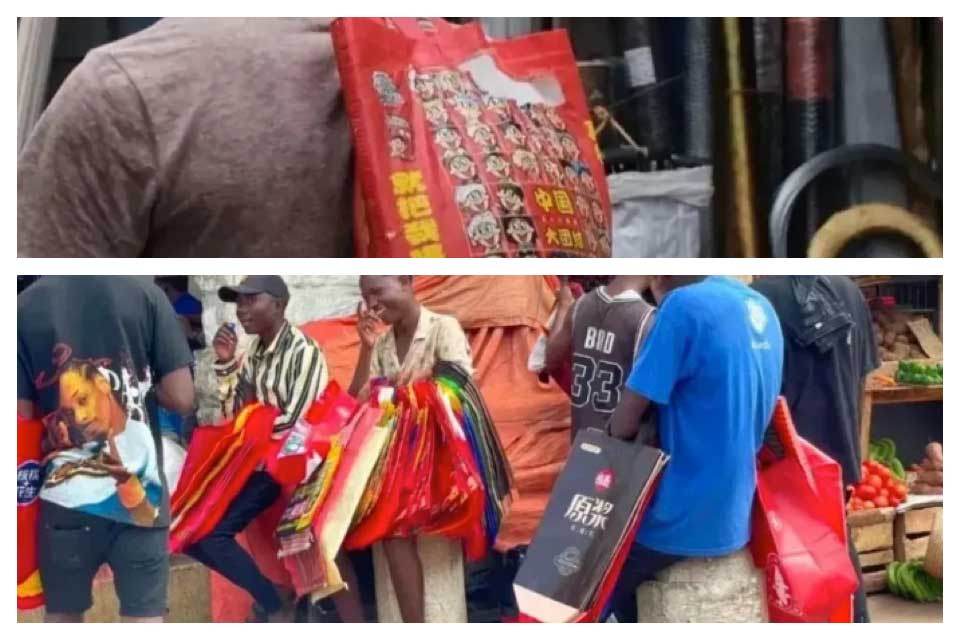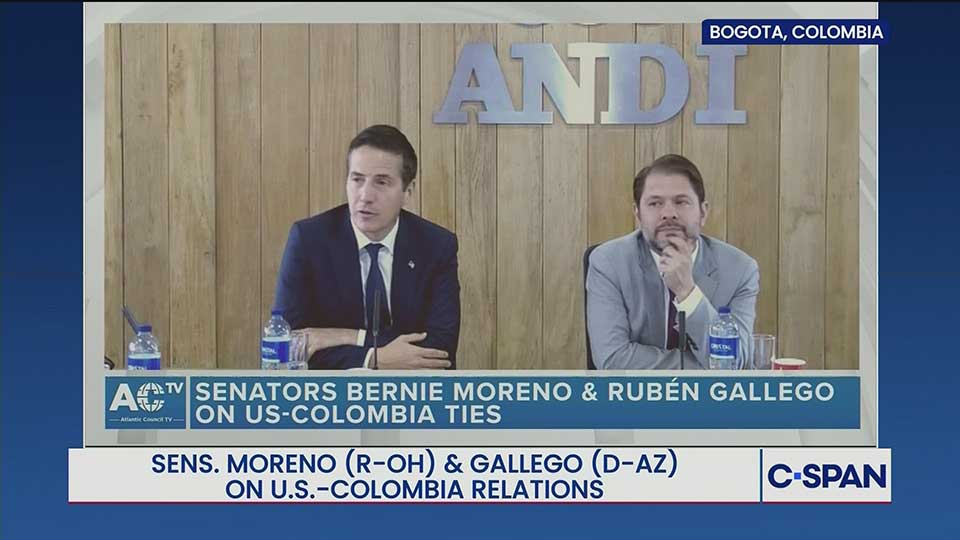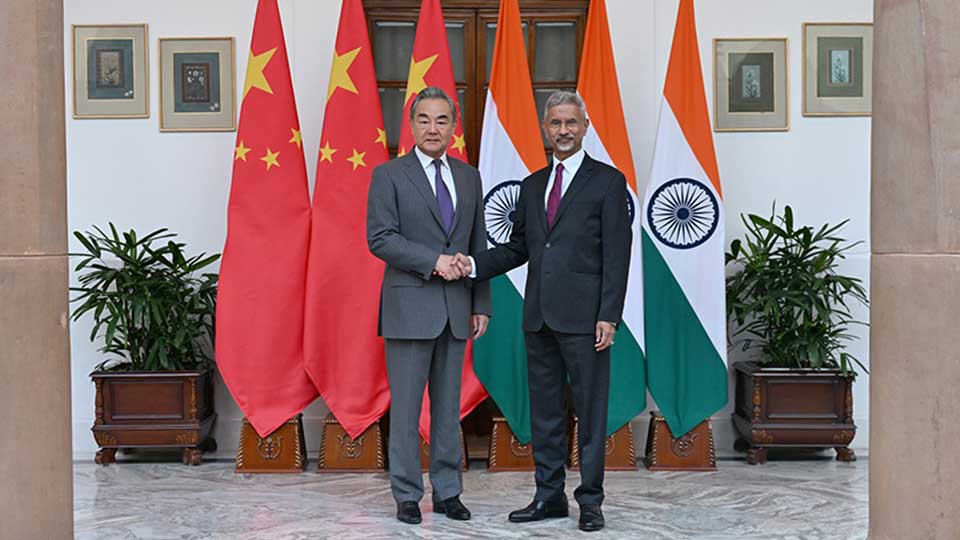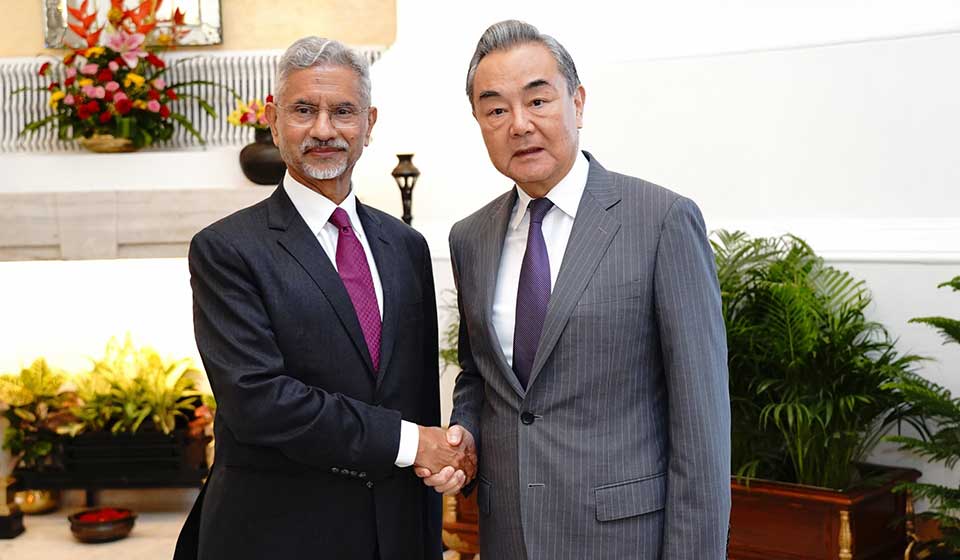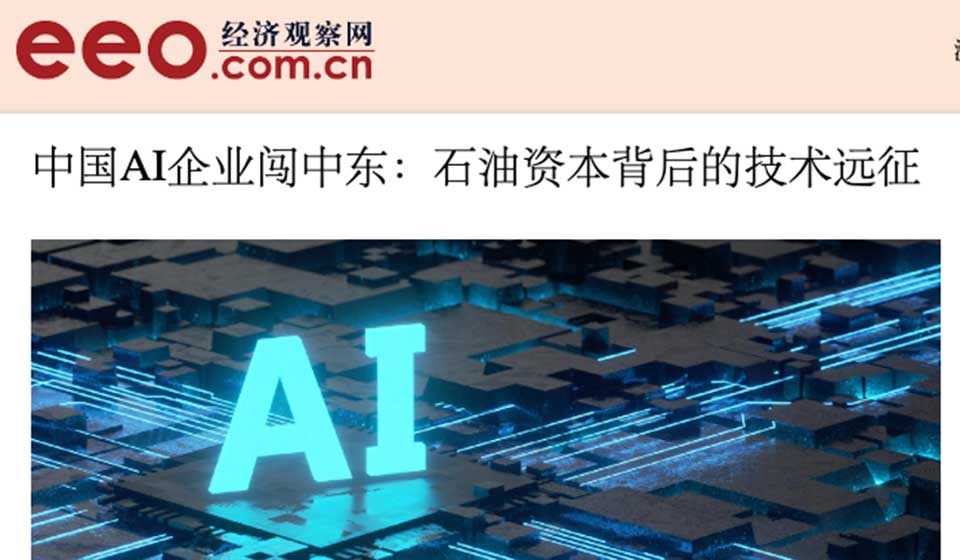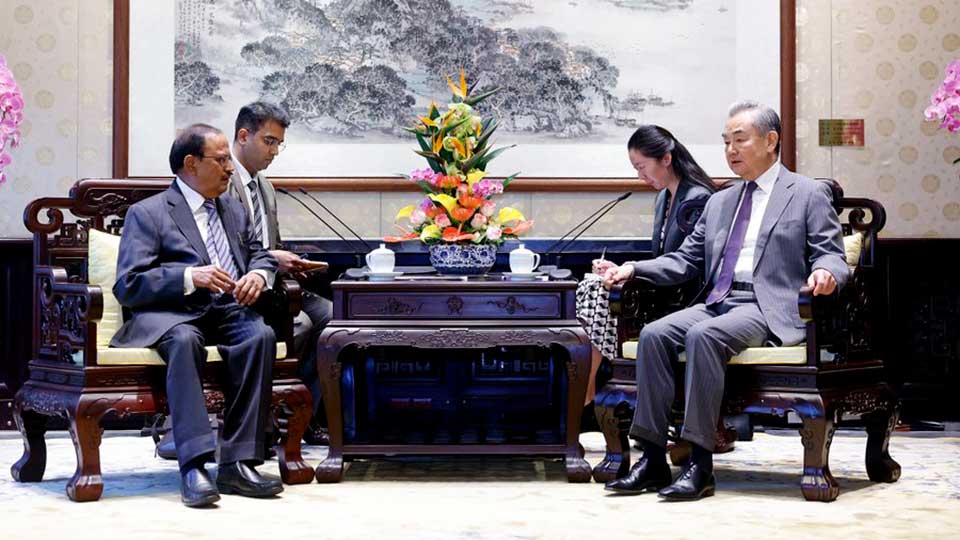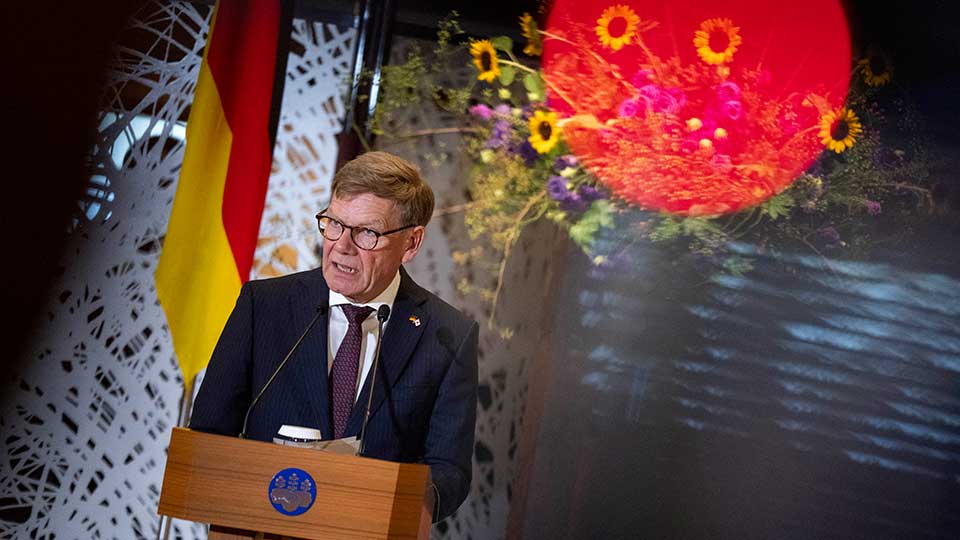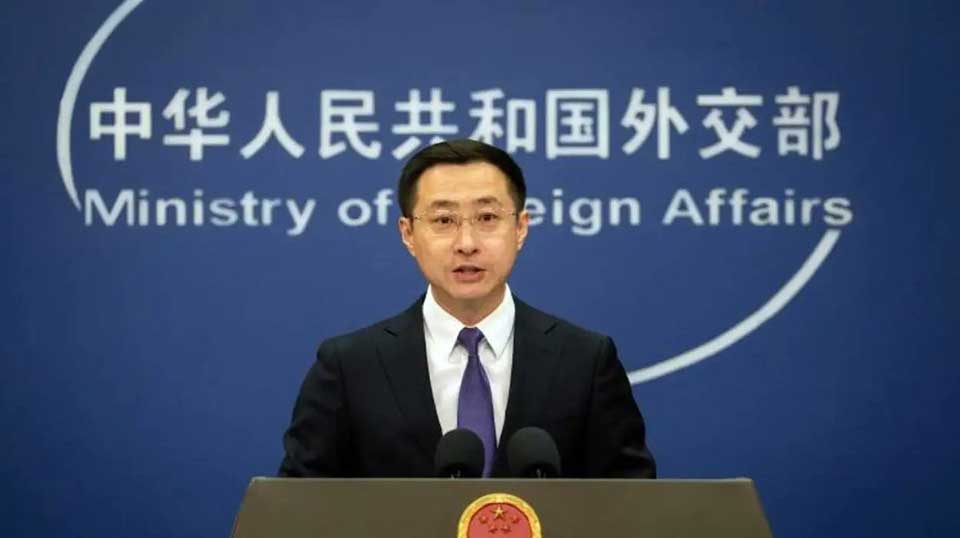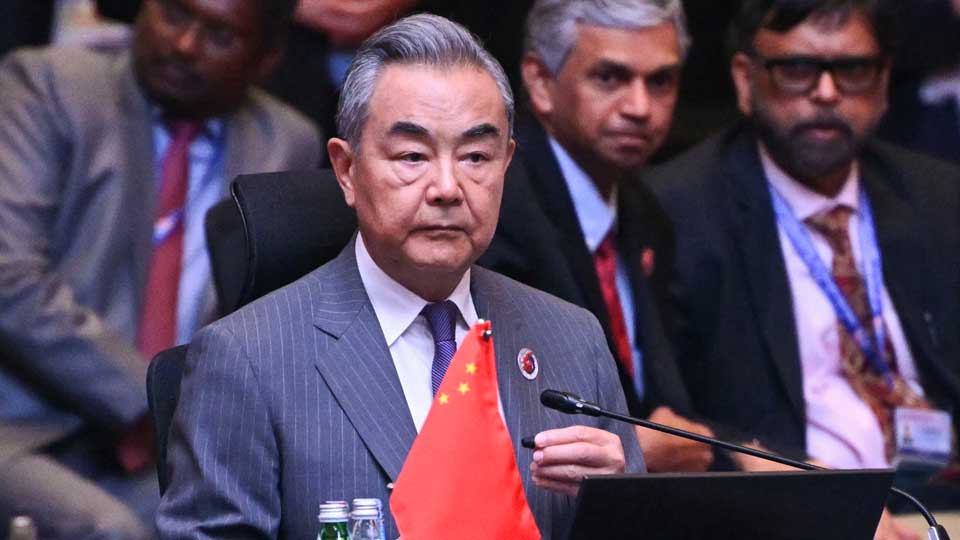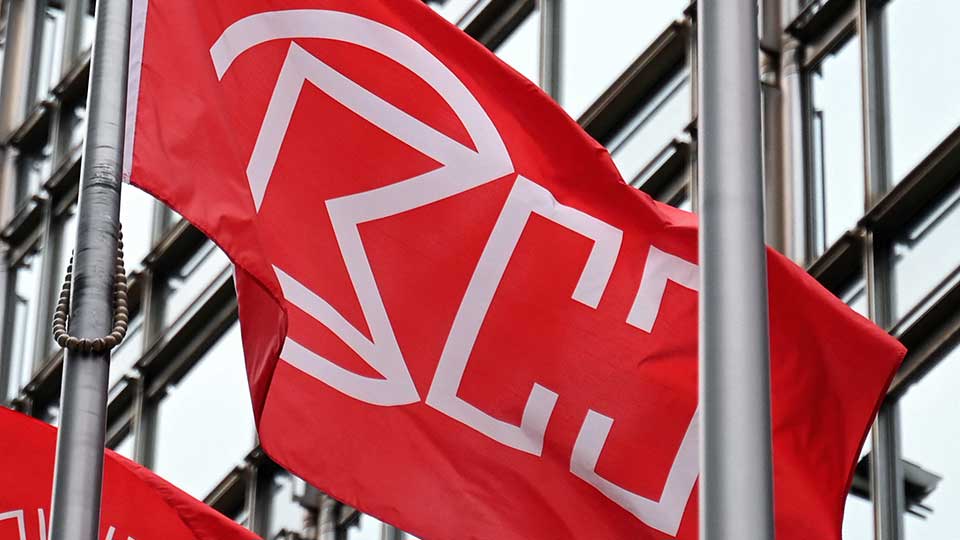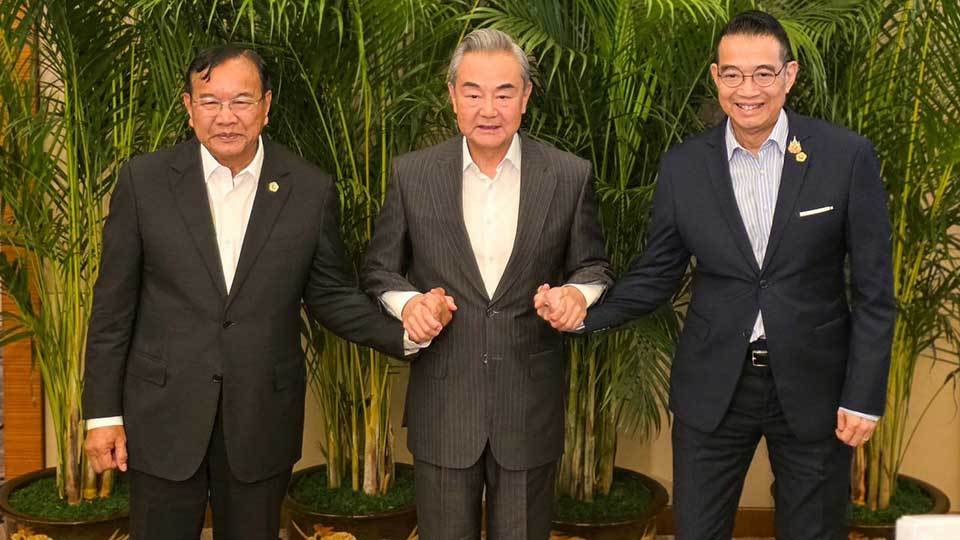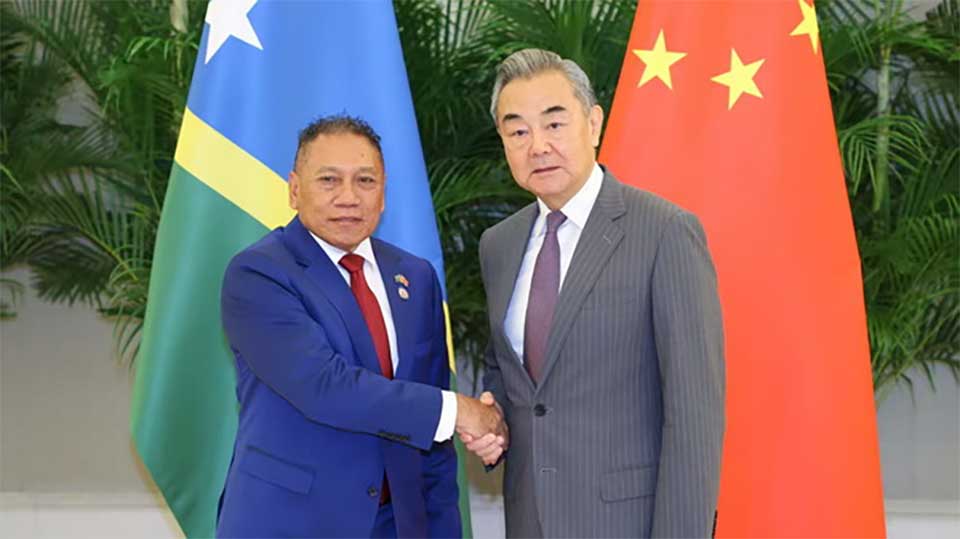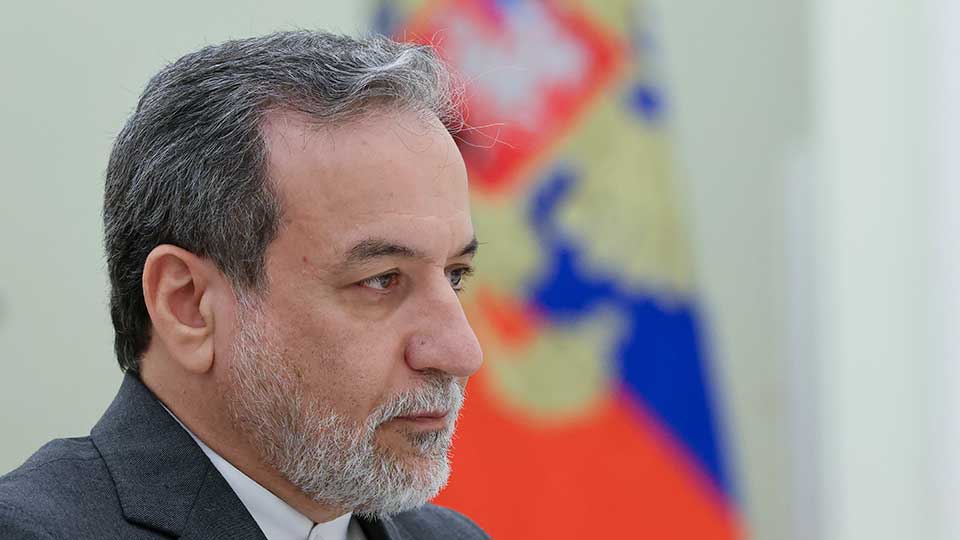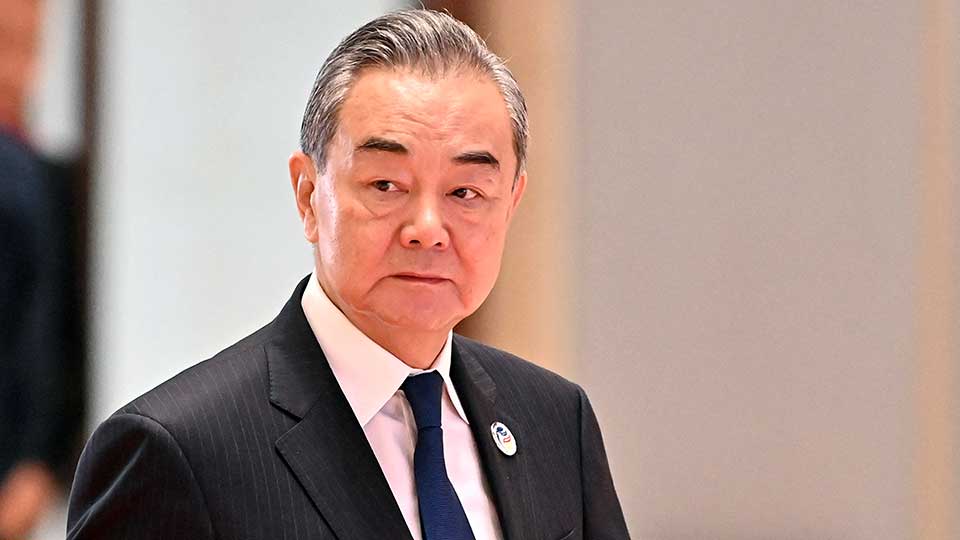Live Feed
The News Feed is curated by CGSP’s editors in Asia and Africa.
Chinese EV Investment Shifts Abroad, Tech Stay Home: Report
It’s the U.S. or China, U.S. Senator Tells Colombian Leaders
As Washington Relations Strain, India Explores a Fragile Thaw With China
China’s Top Diplomat Hails ‘Positive Trend’ in Relations With India
BHP Books Rise in Profit on Back of Chinese Copper Demand
Tariffs Expose Cracks in U.S.–India Biotech Alliance, Chinese Analysts Say
Chinese AI Firms Turn to the Middle East Amid Domestic Funding Crunch
China Expands Media Reach in Kenya With New Distribution Deals
The state-run China Daily newspaper is rapidly expanding its media reach in Kenya with new distribution deals with some of the East African country's largest outlets.
Last week, the Chinese newspaper signed a content-sharing agreement with Capital FM, one of Kenya's largest radio and digital news outlets, making this the second distribution pact in less than a month following a similar agreement with The Star newspaper.
The Capital FM deal is slightly different, though, because, in addition to republishing Chinese state-produced content on its website and social media feeds, the outlet has added a “China Daily” tab to its site’s navigation, giving the content much greater prominence.
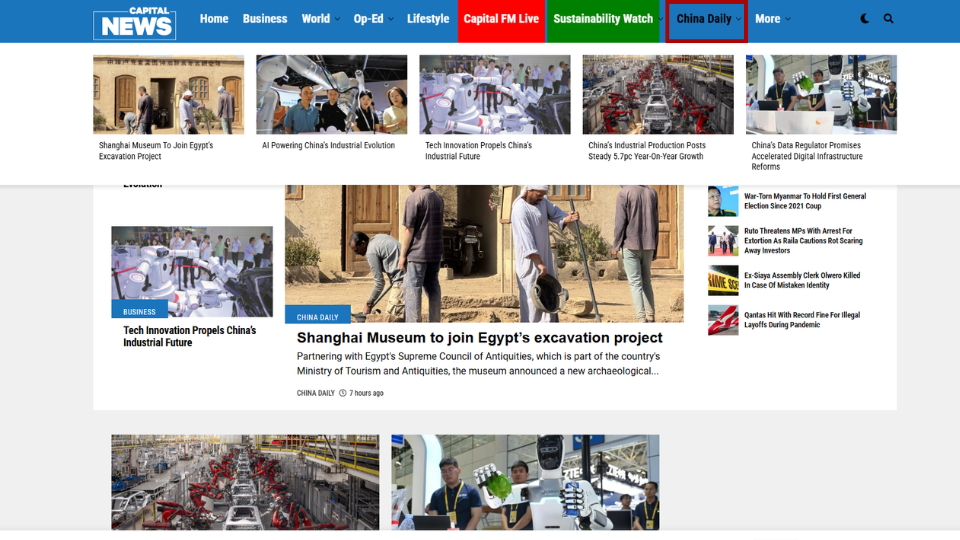
China Daily and other Chinese state/Communist Party-run media have similar distribution deals in at least seven other African countries, including Ghana, Egypt, and South Africa.
WHY IS THIS IMPORTANT: These content-sharing agreements, also known as CSAs, have proven to be highly effective at disseminating Chinese government propaganda, particularly on social media, where it's difficult to discern who the author of a particular piece of media is.
These deals also provide Chinese embassies in the various African countries with powerful leverage to pressure media outlets not to publish material that challenges Chinese policy positions, particularly on sensitive issues like Taiwan, Xinjiang, or even the United States.
It's well-documented that Chinese embassies have threatened to cancel their CSA contracts with publications if these outlets publish columns or other material that is offensive to Beijing.
Zambian Government Tries to Calm Fears Over Contaminated Water From Chinese Mine Disaster
The Zambian government is seeking to reassure the public that municipal water supplies in communities along the Kafue River are still safe, even though recent tests detected excessive levels of heavy metals following a major environmental disaster at a Chinese-owned copper mine six months ago.
“The water is fit for consumption,” Green Economy and Environment Minister Mike Mposha told reporters in Lusaka, the capital, on Friday.
Lab results released last week show that acidity readings of water tested from areas near the mine were within safe levels, but there were elevated levels of manganese and zinc in four of the 23 places that were sampled.
WHY IS THIS IMPORTANT? The Sino Metals dam break that led to 50,000 liters of toxic water to flow into the Kafue River in February is both a massive environmental crisis for the government and a political one as well.
President Haikinde Hichilema is coming under mounting pressure from local stakeholders, the media, and the U.S. government to take stronger action to sanction the Chinese state-owned company, Sino Metals, for the accident that polluted large sections of the water that millions of people depend on for food and their livelihoods.
China Blasts Ted Cruz’s Call for Somaliland Recognition as “Coercive” and “Hegemonic”
Powerful conservative U.S. Senator Ted Cruz kicked up a Texas-sized social media storm on Friday when he declared his support for the U.S. government to diplomatically recognize the breakaway nation of Somaliland on the Horn of Africa.
Cruz's post generated a huge response on X with more than 1.6 million views as of Monday and also provoked a particularly angry reaction from the Chinese government.
The Chinese government is especially sensitive over the fate of Somaliland, given the territory's close ties with Taiwan, and sees any recognition of the breakaway Somali region as a boost for Taiwan.
"This coercive letter (by Cruz) constitutes serious interference in the internal affairs of Somalia and further exposes the hegemonic and bullying attitude of certain U.S. politicians to the Somali people," said a statement released by the Chinese embassy in Somalia on Saturday.
Taiwan's representative office in Somaliland, in contrast, praised Cruz's support for recognition, saying that it was "glad to see more and more democratic like-minded partners endorsing the va Taiwan-Somaliland relationship."
WHY IS THIS IMPORTANT? Somaliland has been extremely effective in its years-long lobbying campaign for U.S. recognition, and it's quite likely that it will pay off with full recognition from the U.S.
But Taiwan's supporters should be more sanguine about what this means for the future of its ties with Somaliland. After U.S. recognition, Somaliland will likely seek to upgrade its status with the UN, something that China will veto immediately.
However, there's a possibility Somaliland could offer China a deal where it sacrifices its ties with Taiwan in return for Beijing's support at the UN.
This would be complicated for China since it would also validate the official recognition of a breakaway region, one that is particularly pro-U.S., but it would also do so in pursuit of further isolating Taiwan, which is always a top priority.
Chinese Foreign Minister in India for Critical Talks Ahead of SCO Summit
China Slams Germany for ‘Hyping’ Regional Tensions in Asia
China lashed out at Germany on Monday, warning Berlin against "inciting confrontation and hyping up tensions" after its foreign minister said Beijing was "increasingly aggressive" in the Asia-Pacific region.
During a visit to Japan, Johann Wadephul said China had made repeated threats to "unilaterally change the status quo and shift borders in its favor", citing its behaviorr in the Taiwan Strait and the East and South China Seas.
"Any escalation in this sensitive hub of international trade would have serious consequences for global security and the world economy," Wadephul said Monday after talks with Japanese counterpart Takeshi Iwaya.
A statement issued on Sunday before Wadephul's visit to Japan -- and later Indonesia -- said that China was "increasingly asserting its regional supremacy and, in doing so, is also questioning principles of international law."
"China's increasingly aggressive behavior in the Taiwan Strait and the East and South China Seas also has implications for us in Europe: fundamental principles of our global coexistence are at stake here," the statement quoted Wadephul as saying.
China's foreign ministry spokeswoman Mao Ning hit back on Monday, telling a regular news conference that the situation in the East China Sea and the South China Sea "remains generally stable".
"We urge the relevant parties to respect regional countries, resolve issues through dialogue and consultation, and safeguard the common interest of peace and stability, instead of inciting confrontation and hyping up tensions," she said when asked about Wadephul's comments.
"The Taiwan question is China's internal affair," she added.
'War Machine' Support
In the joint press statement in Tokyo, Wadephul also criticized "China's support for the Russian war machine" in Ukraine.
"Without it, the war of aggression against Ukraine would not be possible. China is Russia's largest supplier of dual-use goods and Russia's best oil and gas customer," Wadephul said.
He also said ahead of talks later Monday between US President Donald Trump, Ukrainian President Volodymyr Zelensky and European leaders that security guarantees for Kyiv were "crucial".
Trump's summit on Friday with Russian counterpart Vladimir Putin in Alaska "made it clear that for a just and lasting peace, Moscow must finally act. Until that happens, pressure on Russia must be increased, including with increased aid to Ukraine," Wadephul said.
The talks on Monday in Washington are about establishing "the elements of a negotiated solution on the path to a just peace for Ukraine," he said.
"Firm security guarantees are crucial for this. Because Ukraine must be able to defend itself effectively even after a ceasefire and peace agreement."
German Minister Says China ‘Increasingly Aggressive’ in Asia-Pacific Region
China Says Opposes European Sanctions Over Iran Nuclear Program
China’s Top Diplomat Wang to Visit India for Border Talks
WEEK IN REVIEW: India-China Relations Thaw as Flights Resume and Trade Flows Return
China Tells U.S. to Restrain Forces Near Shoal in South China Sea
South China Sea Naval Collision: Beijing and Manila Trade Blame
CK Hutchison Executive Defends Delay in Panama Ports Deal
China Offers Help in Thai-Cambodia Row as Ministers Meet
Solomon Islands Says China Not Influencing Diplomatic Decisions
Iran Says ‘Working With China and Russia’ to Stop European Sanctions
China Backs Thailand-Cambodia Reconciliation, Eyes Investment
South Africa Close to Signing Major Fruit Export Deal With China, Says Ag Minister
South Africa is close to finalizing a major agricultural trade agreement that would significantly expand the range of fruit that could enter the Chinese market.
Agriculture Minister John Steenhuisen said both sides are close on terms, and he hopes that a deal could be signed on the sidelines of the upcoming G20 summit that will take place in South Africa next month.
The new deal would allow for the export to China of South African apricots, peaches, nectarines, plums, and prunes.
WHY IS THIS IMPORTANT? South Africa is among a small number of fruit-producing countries that stand to benefit from China's increasingly frayed trade ties with the United States.
As tensions between the U.S. and China worsen, the Chinese are increasingly looking to end their reliance on food imports from the U.S. South Africa provides a viable alternative for the Chinese since South African growers are capable of producing volumes large enough to service the enormous Chinese market.
Cambodia’s New Chinese-Built Capital Airport Set to Open
Cambodian aviation authorities will conduct a final test flight on Friday at the country's massive new airport ahead of the official opening on September 9th.
It took Chinese contractors five years to build the new facility that includes a stunning nine-ton, nine-meter-tall Buddha statue in the arrival hall.
The new airport will be large enough to accommodate 13 million passengers a year and aircraft as large as the double-decker Airbus A380.
The $1.5 billion facility was originally going to be financed through a loan from the China Development Bank, which fell through in 2021. Cambodian authorities instead turned to long-term bonds and financing from local investors to pay for construction.
- SELF-FINANCING: Cambodia, one of the poorest countries in Asia, deftly found alternatives to Chinese debt financing by issuing bonds and turning to local elites.
- INTERNATIONAL COOPERATION: The construction of this airport demonstrates how effectively Chinese contractors work with international partners. The design was done by British architects Foster + Partners with a lot of the technology supplied by German companies.
Tensions Surge in the South China Sea as PLA Confronts U.S., Philippines Presence
India and China Eye Border Trade Resumption
Chinese Mountaineer Dies on Pakistan’s K2
BYD Readies Thai Exports as Chinese EVs Lead in Southeast Asia
Introducing CGSP Intelligence
CGSP Intelligence gives you the information advantage on Chinese activities in the Global South. CGSP Intelligence is launching in Summer 2025, with analysis and a full set of data tools designed for corporate and enterprise leaders.

